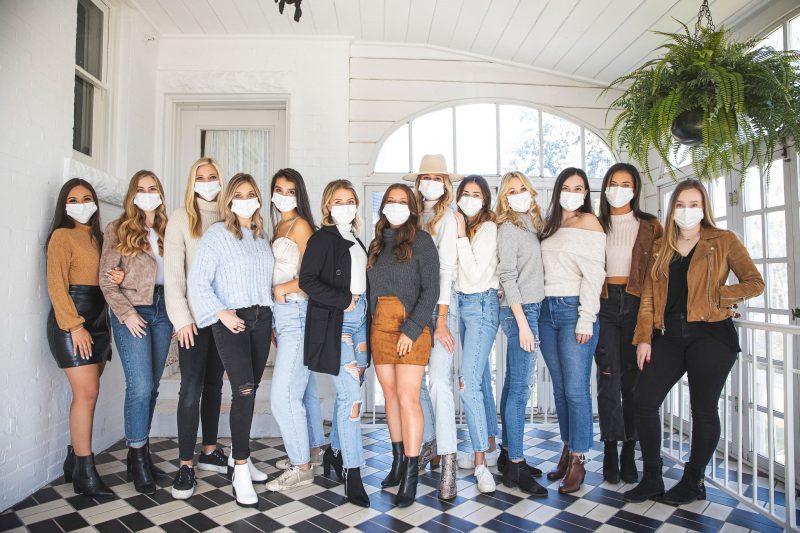Freshmen When COVID-19 Hit Are Now Graduating — What College Was Like for the “COVID Class”
By Sloane Wick
Reporting Texas TV
AUSTIN, Texas — The first group of students from the “COVID class” will graduate next month.
These students were freshmen at the University of Texas when the COVID-19 pandemic hit in March 2020, and their college experience differed from any other generation of Longhorns because of it.
Internships
Daphne Wolfe, UT’s Assistant Director of Career Management, said students lost out on internship and on-campus job opportunities.
“When COVID hit, they said, oh, we don’t know how to safely have this internship program anymore,” Wolfe said. “So instead of providing that internship opportunity for a lot of students, they just said, we can’t have an internship program.”
Many students including finance senior Alexis Sanders transitioned to independent projects they could do from home.
“[My internship] got canceled so then I just had to figure some stuff out and do small projects on the side,” Sanders said.

Over 85% of this year’s graduating seniors’ time in college has included modifications made to college life because of covid. (Photo Courtesy: Alexis Sanders)
Socializing
The “COVID class” also lost out on social and bonding experiences with their peers. Sanders said her social life was wildly different pre-pandemic.
“It was social events almost five times a week,” she said. “On the nights we weren’t doing social stuff, we were at the library or studying at the school. [Then] you go from being in class, being able to ask your neighbor a question to now you’re on a little box on a zoom screen. Being separated physically from other people, that was definitionally the most tough part.”
Developmental psychologist Dr. Jessica Church-Lang said this was not uncommon among students. It was an extremely common sentiment amongst the class, who had just begun to adjust to the new social dynamics of college life when everything social at the university was halted by COVID.
“You’re kind of isolated to an apartment or something like that,” Church-Lang said.
“So you just don’t meet as many people you didn’t have, like lab-based courses as much, or clubs happening or like in-person events happening. And so just a real loss of peer support.”
Church-Lang said the long-term impacts of the interrupted emotional and social development of students due to COVID are currently unknown. But, they are being researched.
College Activities
Traditional college activities like sporting events, student organization meetings and studying abroad were moved online or canceled.
“I was supposed to study abroad in Milan so I wasn’t able to do that which was heartbreaking because they always say college is the time to go abroad,” Sanders said. “Then I tried again and that was canceled too. So, after those two attempts, I couldn’t study abroad in college because of the way my degree plan worked.”
The university sent home all students living on campus after Spring Break in 2020. Most did not return to campus until 2021, when many classes moved from being fully online to a hybrid format.
Applying for Jobs
Now that the “COVID class” is graduating, their resumes look different compared to those who graduated pre-pandemic.
“The biggest difference [is] maybe continuation of membership or continuation of work experience of part-time jobs,” Wolfe said.
“A lot of students prior to the pandemic might have been working in an office here on campus or nearby campus, continuously throughout those four years, [whereas students who were sent home for COVID and brought back to campus in 2021 weren’t able to].”
She said students found ways to work through this challenge and grow through it instead. Wolfe believes students who were in college during COVID will not have less of an edge compared to before them in the career market because of this.
“You had such a hard four years here. It wasn’t a traditional college experience. But [working to overcome the social and career challenges of covid] gives you what we call transferable skills, [like] communication, teamwork skills, critical thinking, diversity and inclusion,” she said.
Learning new skills did not stop there. Church-Lang said students also developed personality traits that will help them after graduation.
“You’re dealing with more than previous cohorts in college had to deal with, and so maybe you’re even going to be better at adapting to unpredictability,” she said.
What’s Next for the “COVID Class?”
Sanders and other students in the “COVID class” are optimistic about their futures, despite their non-traditional college experience.
“Being upset isn’t going to change it and it’s kind of one of those things where I look at the positives and what the good things that came out of COVID were,” Sanders said. She accepted a job offer and will begin working in July. She plans to use the time in between graduating and starting work to make up for her lack of college experience by finally going abroad.